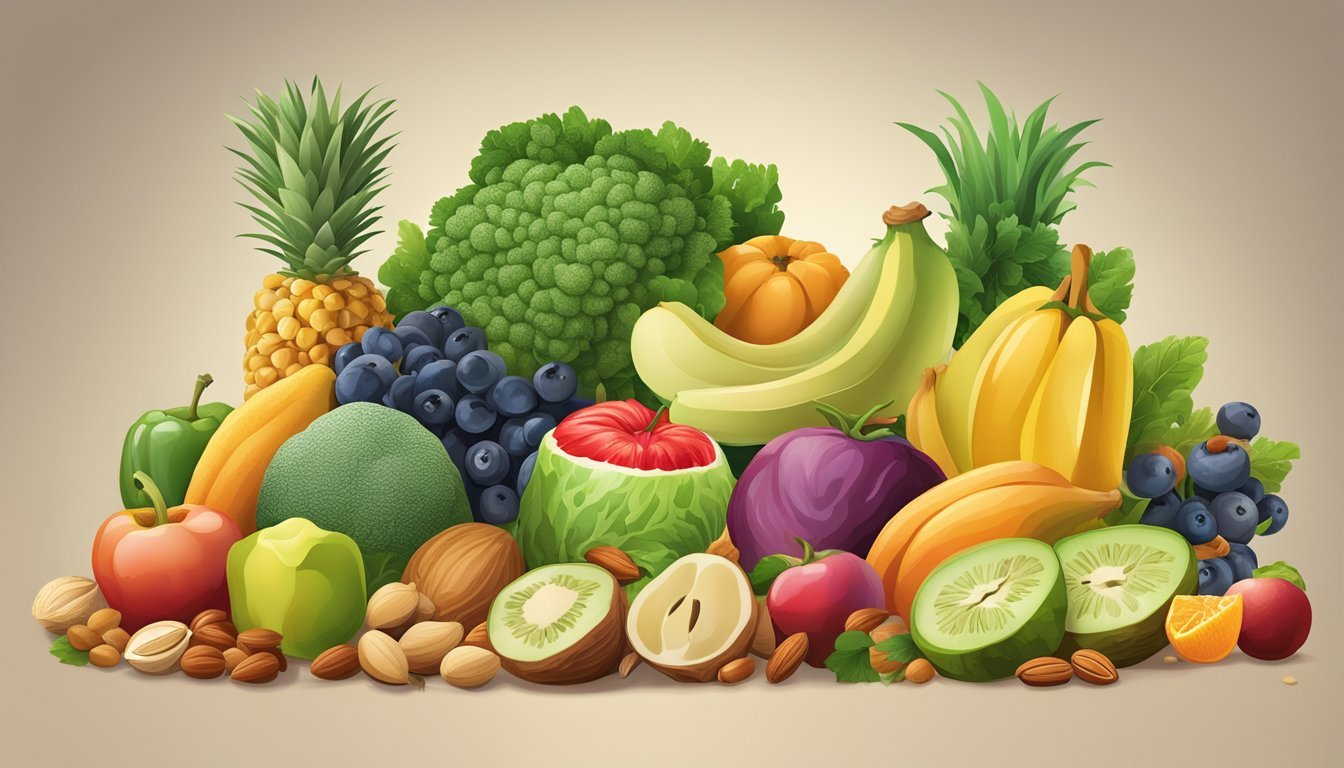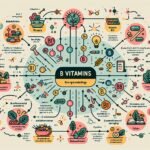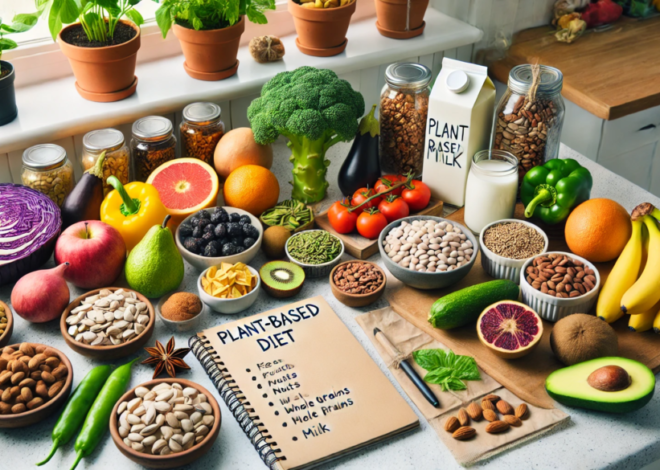
Vegan Nutrition: How to Ensure Balanced Nutrition on a Vegan Diet
If you’re considering a vegan diet, you may be wondering how to ensure that you’re getting all the necessary nutrients for optimal health. While it is possible to meet your nutritional needs on a vegan diet, it requires careful planning and attention to detail. In this article, we’ll explore the key nutrients that are important for vegans to focus on and provide tips for ensuring balanced nutrition on a vegan diet.
One of the most important nutrients for vegans to pay attention to is protein. While it is possible to get enough protein on a vegan diet, it requires a bit more effort than it does for meat-eaters. Vegans should aim to consume a variety of protein sources, including legumes, nuts, seeds, and whole grains. It’s also important to pay attention to the amino acid profile of your protein sources, as some plant-based proteins may be lower in certain essential amino acids.
Another nutrient that requires special attention on a vegan diet is vitamin B12. This essential vitamin is found primarily in animal-based foods, so vegans must obtain it from fortified foods or supplements. Other important nutrients for vegans to focus on include iron, calcium, omega-3 fatty acids, and vitamin D. By carefully planning your meals and paying attention to your nutrient intake, you can ensure that you’re meeting your nutritional needs on a vegan diet.
Fundamentals of Vegan Nutrition
As a vegan, it is important to ensure that your diet is balanced and provides all the necessary nutrients for optimal health. In this section, we will discuss the fundamentals of vegan nutrition, including macronutrients, micronutrients, and the role of fiber and water in your diet.
Macronutrients: Proteins, Carbs, and Fats
Proteins, carbohydrates, and fats are the three macronutrients that your body needs in large quantities to function properly. As a vegan, you can obtain all three macronutrients from plant-based sources.
Proteins: Good sources of plant-based proteins include legumes (e.g. lentils, chickpeas, and beans), nuts and seeds (e.g. almonds, chia seeds, and pumpkin seeds), and whole grains (e.g. quinoa, brown rice, and oats). It is important to consume a variety of protein sources to ensure that you are getting all the essential amino acids that your body needs.
Carbohydrates: Whole grains, fruits, and vegetables are excellent sources of carbohydrates. These foods provide your body with energy and are also rich in fiber, which is important for digestive health.
Fats: Healthy sources of plant-based fats include avocados, nuts and seeds, and olive oil. These fats are important for brain function and hormone production.
Micronutrients: Vitamins and Minerals
Micronutrients are essential nutrients that your body needs in smaller quantities, but are still important for overall health. As a vegan, it is important to pay attention to certain micronutrients that are commonly found in animal products.
Vitamin B12: Vitamin B12 is essential for nerve function and DNA synthesis. Since it is primarily found in animal products, it is important for vegans to supplement their diet with vitamin B12. Good sources of vitamin B12 for vegans include fortified cereals, nutritional yeast, and plant-based milks.
Iron: Iron is important for red blood cell production and energy metabolism. Good plant-based sources of iron include dark leafy greens (e.g. spinach and kale), lentils, and fortified cereals.
Calcium: Calcium is important for bone health and muscle function. Good plant-based sources of calcium include leafy greens (e.g. collard greens and bok choy), fortified plant-based milks, and tofu.
The Role of Fiber and Water
Fiber and water are important components of a healthy vegan diet. Fiber helps to keep your digestive system healthy and can also help to lower your risk of certain diseases. Good sources of fiber include whole grains, fruits, and vegetables.
Water is essential for overall health and helps to regulate body temperature, transport nutrients, and remove waste from the body. As a vegan, you can obtain water from drinking water, herbal teas, and consuming water-rich foods such as fruits and vegetables.
In summary, a balanced vegan diet should include a variety of plant-based sources of macronutrients and micronutrients, as well as plenty of fiber and water. By paying attention to your nutrient intake and making sure that you are consuming a variety of plant-based foods, you can ensure that your vegan diet is healthy and balanced.
Planning a Balanced Vegan Diet
Eating a balanced vegan diet requires careful planning to ensure that you are getting all the necessary nutrients your body needs. Below are some important factors to consider when planning a balanced vegan diet.
Diverse Food Sources
A balanced vegan diet should be rich in a wide variety of whole plant-based foods including fruits, vegetables, whole grains, legumes, nuts, and seeds. These foods provide essential nutrients such as protein, fiber, healthy fats, vitamins, and minerals. Eating a variety of these foods can help ensure that you are getting all the nutrients your body needs.
Supplementation Strategies
Some nutrients are more difficult to obtain on a vegan diet, such as vitamin B12, vitamin D, and omega-3 fatty acids. It is important to consider supplementing with these nutrients to ensure that you are meeting your daily requirements. Consult with a healthcare professional or registered dietitian to determine if you need to supplement and what dosage is appropriate for you.
Meal Planning and Prep
Meal planning and prep can be helpful in ensuring that you are consuming a balanced vegan diet. Plan your meals in advance and make sure they include a variety of whole plant-based foods. This can help ensure that you are getting all the necessary nutrients your body needs. Preparing meals in advance can also save time and make it easier to stick to a balanced vegan diet.
In conclusion, planning a balanced vegan diet requires careful consideration of diverse food sources, supplementation strategies, and meal planning and prep. By following these guidelines, you can ensure that you are getting all the necessary nutrients your body needs to thrive on a vegan diet.
Frequently Asked Questions
How can one obtain sufficient protein on a vegan diet?
Protein is an essential nutrient that is important for building and repairing tissues in the body. While animal products are a common source of protein, there are plenty of plant-based protein sources that can be incorporated into a vegan diet. Some examples include beans, lentils, tofu, tempeh, nuts, and seeds. It is important to consume a variety of protein sources to ensure you are getting all of the essential amino acids your body needs.
What are the best sources of calcium for vegans?
Calcium is important for building and maintaining strong bones and teeth. While dairy products are a common source of calcium, there are plenty of plant-based sources that can be incorporated into a vegan diet. Some examples include dark leafy greens like kale and collard greens, fortified plant milks and juices, tofu made with calcium sulfate, and certain types of nuts and seeds like almonds and sesame seeds.
Which vitamins and minerals may require supplementation in a vegan diet?
While a well-planned vegan diet can provide all of the essential nutrients your body needs, there are a few vitamins and minerals that may require supplementation. These include vitamin B12, vitamin D, and omega-3 fatty acids. It is important to speak with a healthcare provider or registered dietitian to determine if you need to supplement with these nutrients and in what amounts.
What are some nutrient-rich vegan food options for beginners?
If you are new to a vegan diet, it can be helpful to focus on incorporating nutrient-dense whole foods into your meals. Some examples include leafy greens, whole grains, beans and legumes, nuts and seeds, and a variety of colorful fruits and vegetables. It is also important to make sure you are consuming enough calories to meet your energy needs.
How can vegans ensure they are getting enough omega-3 fatty acids?
Omega-3 fatty acids are important for brain and heart health. While fatty fish is a common source of omega-3s, there are plenty of plant-based sources that can be incorporated into a vegan diet. Some examples include flaxseeds, chia seeds, hemp seeds, walnuts, and algae-based supplements.
What are the potential long-term health impacts of a vegan diet?
While a well-planned vegan diet can provide all of the essential nutrients your body needs, there are some potential long-term health impacts to be aware of. These include an increased risk of nutrient deficiencies, particularly vitamin B12 and iron, and a potential increase in bone fracture risk. It is important to speak with a healthcare provider or registered dietitian to ensure you are meeting all of your nutrient needs on a vegan diet.











